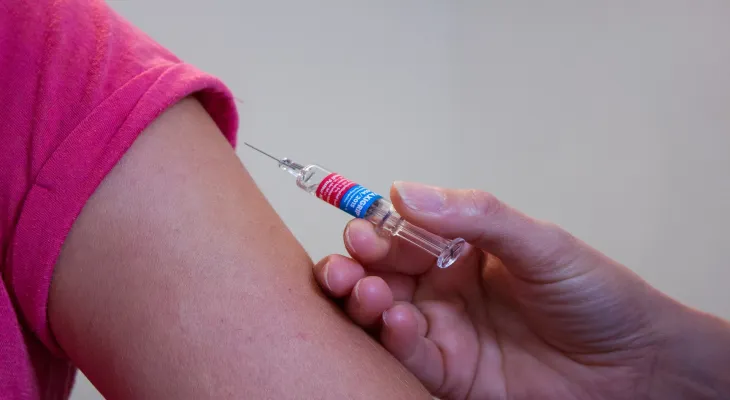Search here
Newspaper
Search here

Arab Canada News
News

Published: May 23, 2022
The company announced on Monday that three doses of the COVID-19 vaccine produced by Pfizer provide strong protection for children under 5 years old. Pfizer plans to submit the data to American regulators later this week in a step towards allowing young children to receive the vaccines.
This news comes after months of anxious waiting by desperate parents to vaccinate their young children and preschoolers, especially as COVID-19 cases are rising again. The 18 million children under five are the only group in the United States not yet eligible for COVID-19 vaccination.
The Food and Drug Administration has begun evaluating data from competing company Moderna, which hopes to start offering two doses for children by summer.
Pfizer had a harder time figuring out its approach. It aims to give children a smaller dose - just one-tenth of the amount adults receive - but during its trial, it found that two doses did not seem strong enough for younger children. Therefore, researchers gave a third dose to more than 1,600 young age groups - from 6 months to 4 years old - during the winter wave of the Omicron variant.
In a press release, Pfizer and its partner BioNTech said the additional dose was successful, increasing antiviral antibody levels enough to meet FDA standards for emergency vaccine use without any safety concerns.
Preliminary data indicated that the three-dose series is 80% effective in preventing symptomatic COVID-19, but it warned that the study is based on only 10 cases diagnosed among study participants by the end of April. Study rules state that at least 21 cases are needed to formally determine efficacy, and Pfizer promised to provide an update once more data is available.
The companies have already submitted data on the first two doses to the FDA, and BioNTech CEO Dr. Ugur Sahin said the final Phase Three data would be submitted this week.
He said in a statement: "The study indicates that a low dose of 3 micrograms of our vaccine, carefully selected based on tolerance data, provides young children with a high level of protection against recent COVID-19 strains."
The FDA’s vaccines chief, Dr. Peter Marks, pledged that the agency "will move quickly without compromising our standards" in evaluating large-scale doses from both Pfizer and Moderna.
The agency has set tentative dates next month for its scientific advisers to publicly discuss data from each company.
Moderna aims to be the first to vaccinate young children. It has submitted data to the FDA showing that children develop high levels of antiviral antibodies after two shots containing a quarter of the adult dose. Moderna’s study found efficacy against symptomatic COVID-19 ranged from 40% to 50% during the Omicron surge, just like adults who received only two doses of the vaccine.
The FDA has so far only authorized the use of its vaccine for adults.
The FDA is expected to review Moderna’s data on both the younger age group, as well as its study on adolescents and elementary-aged children. Other countries have already expanded Moderna vaccines to children up to 6 years old.
While COVID-19 in general is not as dangerous to young children as to adults, some children become severely ill or even die. The Omicron variant has particularly affected children, with hospitalization rates for those under 5 higher than during the previous Delta surge peak.
It is unclear how much demand there is for vaccinating young children. Pfizer vaccines became available for children aged 5 to 11 in November, but only about 30% of that age group have received the recommended two initial doses. Last week, U.S. health authorities said elementary school children should receive a booster dose just like anyone aged 12 or older, for the best protection against the latest coronavirus variants.
Editing: Dima Abu Khair
Comments